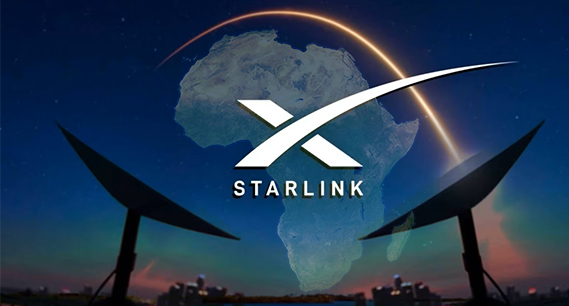
Starlink Internet in Africa: Advantages, Disadvantages, and Innovation
by George Seitlheko | 07-Jun-2024 | tech
Starlink, the satellite internet constellation project developed by SpaceX, promises to revolutionize internet access globally, especially in underserved regions. In Africa, where internet infrastructure often lags, Starlink presents both significant opportunities and challenges. This article explores the advantages and disadvantages of Starlink in African countries, its potential impact on local startups, and the reasons behind its ban in countries like South Africa.
Advantages of Starlink in Africa
- Enhanced Connectivity in Remote Areas
Many African countries suffer from limited internet infrastructure, particularly in rural and remote areas. Starlink’s satellite-based system can provide high-speed internet access where traditional fiber optic or mobile networks are unavailable.
- Improved Educational Opportunities
Reliable internet access can transform education by providing students and educators with vast resources and enabling online learning platforms. This can help bridge the educational gap between urban and rural areas.
- Economic Growth and Development
Enhanced internet access can spur economic development by enabling e-commerce, remote work, and digital services. Small businesses and entrepreneurs can reach global markets, boosting local economies.
- Disaster Resilience
Satellite internet is less susceptible to physical damage compared to terrestrial infrastructure. In the event of natural disasters, Starlink can provide emergency connectivity when ground-based networks are down.
Disadvantages of Starlink in Africa
- High Costs
The initial cost of Starlink’s equipment and subscription fees may be prohibitively expensive for many users in African countries. This limits its accessibility to wealthier individuals and businesses.
- Regulatory Challenges
Each country has its own regulatory framework for telecommunications. Navigating these can be complex and may delay the deployment of Starlink services.
- Potential Market Disruption
Local ISPs and telecom companies might face stiff competition from Starlink, potentially leading to market disruptions. While this could drive innovation and lower prices, it might also threaten the viability of smaller local providers.
- Environmental Concerns
The deployment of thousands of satellites raises environmental and space debris concerns. Additionally, the energy consumption of the ground equipment and satellites has ecological implications.
Starlink’s Impact on Innovation and Small Startups
Empowering Startups
Starlink can significantly impact innovation and entrepreneurship in Africa by providing reliable internet access to regions previously underserved. This connectivity enables:
- Remote Work and Collaboration: Startups can collaborate with global partners and access international markets.
- Access to Global Knowledge: Entrepreneurs can leverage online resources, courses, and forums to enhance their skills and business strategies.
- Digital Services Expansion: With reliable internet, startups in fintech, e-health, e-commerce, and other sectors can offer their services to a broader audience.
Challenges for Local Startups
While the benefits are clear, there are challenges:
- Cost Barrier: The expense of Starlink services may be too high for early-stage startups.
- Regulatory Hurdles: Startups may struggle to comply with regulatory requirements for internet services in different countries.
- Competition with Established Players: New ventures might find it hard to compete with established tech giants who have better resources to leverage Starlink’s potential.
Why Starlink is Banned in Countries Like South Africa
Regulatory Concerns
Starlink has faced bans or delays in countries like South Africa primarily due to regulatory issues. Key reasons include:
- Licensing and Compliance: Starlink must obtain appropriate licenses to operate, and this process can be stringent and slow. South Africa has strict telecommunications regulations to protect local markets and ensure compliance with national standards.
- Market Protection: The government may aim to protect local ISPs and telecom providers from the disruptive impact of a large, foreign entity like Starlink. Ensuring fair competition is crucial for the health of the local industry.
- National Security: Satellite internet services raise concerns about data privacy and national security. Governments need to ensure that data transmitted via foreign satellites adheres to national security policies.
- Economic Considerations: The cost of Starlink services might be seen as not aligning with the economic realities of the majority of the population, leading to skepticism about its feasibility and widespread adoption.
Conclusion
Starlink holds tremendous promise for enhancing internet connectivity across Africa, potentially transforming education, healthcare, and economic opportunities in remote and underserved areas. However, the high costs, regulatory challenges, and potential market disruptions pose significant hurdles. Balancing these factors is crucial for maximizing the benefits of Starlink while mitigating its disadvantages. As African countries navigate these challenges, fostering an environment that supports innovation and local startups will be key to leveraging the full potential of satellite internet technology.
Follow ClydeByte

